For many of us, getting into a cozy bed after a long day is one of life’s great pleasures. All your tasks are done and you’re snuggled up between your sheets in blissful quiet, ready to rest. But that pleasure can quickly turn to frustration when you suddenly realize… you can’t get to sleep, even though you really, really want to.
Trouble sleeping is super common. According to WebMD, at least one-third of Americans say they regularly have trouble falling asleep and experience lying awake a few nights per week. Some people may be kept awake by stress because, for example, they’re overwhelmed by everything on their to-do list for the next day. Others might feel perfectly calm but still not able to drift off into dreamland.

Luckily, there are plenty of strategies you can try to help you fall asleep and stay asleep. For some people, lifestyle changes or natural remedies may be enough to cut down the time it takes them to fall asleep. Other people may have a sleep disorder, such as insomnia, that could require visiting a doctor for treatment like medication.
Trouble sleeping is not only frustrating — it can also affect your health. The Centers for Disease Control and Prevention (CDC) says that one in three Americans are sleep deprived, and long-term sleep deprivation is linked to serious health issues including heart disease and diabetes. Plus, lack of sleep can mess with your attention span, increase the likelihood that you’ll get into a car accident, contribute to depression, and affect your judgment.
The bottom line: You want to do everything in your power to make sure you are getting enough sleep at night. In that spirit, this piece will explore some common reasons why you might be struggling to fall asleep, factors that might be waking you up at night, and popular remedies for falling asleep quickly.
[Editor’s Note: The content provided on this site is for general informational purposes only. Any information provided is not a substitute for professional medical advice. We encourage you to consult with the appropriate health expert if you have concerns.]
Why Can’t I Fall Asleep — Or Stay Asleep?
There are a number of things that could be contributing to your sleep issues. If you regularly have trouble falling or staying asleep, it may be worth jotting down notable factors such as what time you ate that day, whether you exercised, how much caffeine you consumed and when, and so on. This can help you track any specific patterns related to your sleep troubles.
It’s also a good idea to be on the lookout for some of the common reasons for sleep struggles, which may be rearing their heads in your own day-to-day life. Here are some reasons why you might have trouble falling asleep or staying asleep.
The bedroom is too light.
If people have a TV going in their room or keep the lights on at night, the extra light can affect their sleep. The bedroom should ideally be as dark as possible, as darkness helps cue the body that it’s time to go to bed (Plus, blue light from electronics interferes with the production of the hormone melatonin, which is related to sleepiness.) To keep the bedroom dark, people can:
- Hang curtains, blinds, or blackout shades.
- Turn off all lights and screens at night.
- Wear an eye mask to block out unwanted light.
The bedroom is too loud.
Have you ever been jolted awake due to a loud noise such as a car door slamming on the street or a loud commercial playing on the TV downstairs? Ideally, the bedroom should be as quiet as possible to facilitate a peaceful night’s sleep. There are plenty of options for masking unwanted noise:
- Keep a fan running.
- Purchase a white noise machine, which will produce neutral sounds that may help drown out other, more disruptive noises.
- Wear ear plugs while sleeping.
- Hang blankets or tapestries on the walls to reduce sound travel.
- Make sure all electronics are silenced before falling asleep.
The bedroom is too hot or too cold.
According to Sleep.org, the ideal bedroom temperature is somewhere between 60 and 67 degrees Fahrenheit. That’s because one’s core body temperature drops when they fall asleep, and a bedroom temp that’s too high or too low can interfere with that process. Feeling overheated or freezing cold when people are trying to fall asleep can make it harder to drift off, and uncomfortable temperatures can also cause nighttime wake-ups.
If the room is typically very warm, try:
- Running a fan
- Opening a window
- Wearing light, breathable sleepwear
- Making sure the sheets and blankets are not too heavy (think cotton rather than flannel)
If the room is too cold, try:
- Turning on the heat
- Wearing extra-warm PJs
- Putting a hot water bottle near the feet
- Sleeping in socks
Consuming alcohol too close to bedtime.
Because alcohol typically makes people feel sleepy, it makes sense to assume that a drink can help them fall asleep. However, a 2013 review of 27 different studies about alcohol and sleep concluded that drinking can help people fall asleep more quickly, but it can also contribute to a number of sleep issues including waking up in the middle of the night (1). Further research suggests that even one night of binge drinking can affect the gene that regulates sleep.
Alcohol may disrupt sleep for several reasons. For instance, drinking alcohol affects the kidneys, meaning people may be more likely to wake up to use the bathroom. It can also cause night sweats, which might wake you, or worsen existing sleep apnea, which can also interfere with sleep . For these reasons, the Mayo Clinic recommends you stop drinking three hours before bedtime.
Eating a large or high-fat meal close to bedtime.
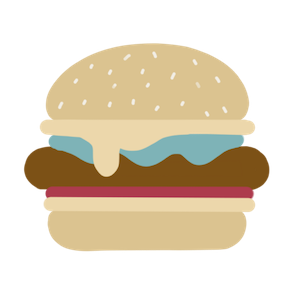 According to the Mayo Clinic, eating a large or particularly fatty meal right before bed can make it more difficult for you to fall asleep. Ideally, you should give yourself two or three hours to digest your meal before heading to bed. This will help prevent heartburn and reduce the risk that you’ll have trouble sleeping.
According to the Mayo Clinic, eating a large or particularly fatty meal right before bed can make it more difficult for you to fall asleep. Ideally, you should give yourself two or three hours to digest your meal before heading to bed. This will help prevent heartburn and reduce the risk that you’ll have trouble sleeping.
You constantly wake up to use the bathroom.
Staying hydrated is important — but drinking too much liquid (especially before bed) might mean you wake up to pee in the middle of the night. This is very common; research estimates around 30 percent of people wake up at least once per night to urinate (and this gets much more common as you get older) (2).
If this is a common struggle for you, try reducing how much you drink in the evening to see if that helps. Consult your doctor if you still find yourself waking up to use the bathroom regardless of reduced liquid intake.
Having too much caffeine.
So many of us need coffee, tea, soda, and energy drinks to get through our busy days. However, ingesting caffeine too late in the day might keep people up at night.
Caffeine affects everyone differently, but most experts recommend that people stop ingesting caffeine by mid-afternoon to ensure it doesn’t interfere with their sleep. If you are really craving a late afternoon or evening coffee, try switching to decaf or seeing if a glass of cold water has the same invigorating effect.
Your daytime nap habits interfere with your sleep at night.
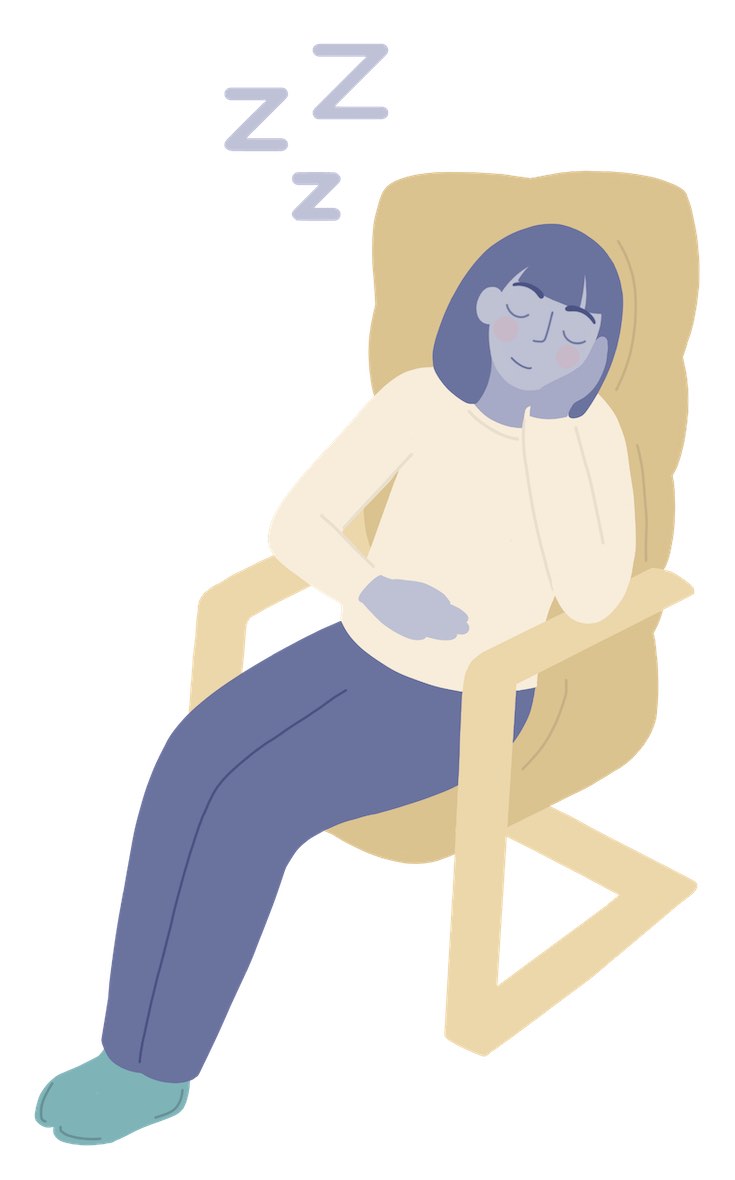 Naps can be a great tool to help boost energy during the day. However, napping for too long or napping too late in the day can have the drawback of affecting how people sleep at night. The Mayo Clinic website says: “Short naps generally don’t affect nighttime sleep quality for most people. But if people experience insomnia or poor sleep quality at night, napping might worsen these problems. Long or frequent naps might interfere with nighttime sleep.”
Naps can be a great tool to help boost energy during the day. However, napping for too long or napping too late in the day can have the drawback of affecting how people sleep at night. The Mayo Clinic website says: “Short naps generally don’t affect nighttime sleep quality for most people. But if people experience insomnia or poor sleep quality at night, napping might worsen these problems. Long or frequent naps might interfere with nighttime sleep.”
To make sure one’s naps aren’t interfering with their nightly sleep, try to keep naps short (a 20-minute nap is usually long enough to refresh most people) and avoid napping after 3 p.m.
How to Fall Asleep Quickly
Eliminating some of the common issues that prevent falling asleep is a great way to increase the odds of drifting off to dreamland. As people remove these obstacles from their life, adopting new, healthier habits can also help them fall asleep faster.
If people want to avoid staring at the ceiling while wishing they could just fall asleep already, here are a few things they can try to speed up the getting-to-sleep process.
Practice good sleep hygiene.
Sleep hygiene — that’s a group of habits that set people up to get enough high-quality sleep each night — can make a major difference. Here are some tried-and-true sleep hygiene tips:
- Keep the bedroom cool, dark, and quiet.
- Go to bed at the same time each night.
- Wake up at the same time each morning. (Yes, even on weekends!)
- Avoid looking at screens before bedtime.
- Keep naps short, and only nap early in the day.
- Follow a regular nighttime routine (more on that in just a moment).
Establish a nighttime routine.
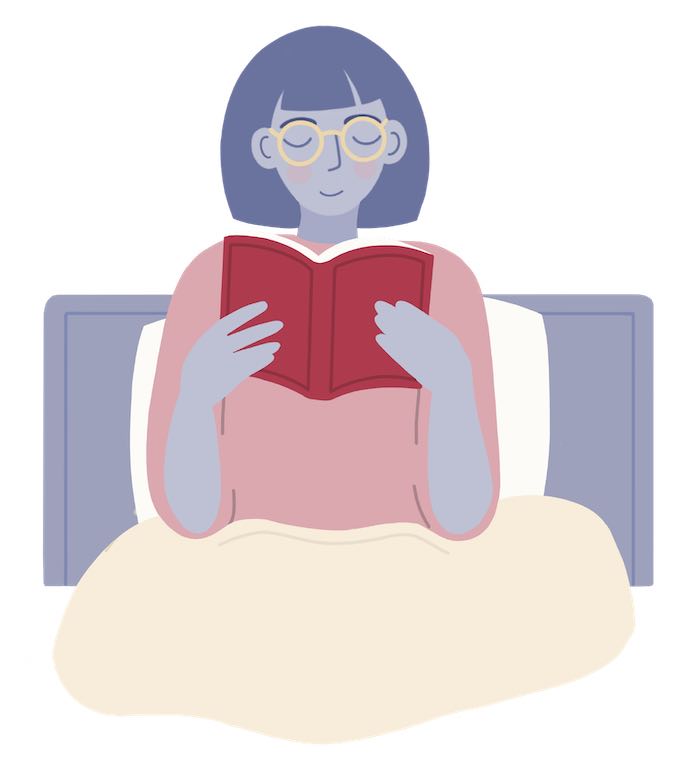 There’s a reason why experts recommend a bedtime routine for babies and little kids — it helps set them up to fall asleep peacefully. Maybe you had a bedtime routine when you were a child, too, such as taking a bath and then reading a bedtime story.
There’s a reason why experts recommend a bedtime routine for babies and little kids — it helps set them up to fall asleep peacefully. Maybe you had a bedtime routine when you were a child, too, such as taking a bath and then reading a bedtime story.
As an adult, it’s still important to find a routine that works for people. Options include taking a warm shower, listening to calming music, meditating, reading, changing into pajamas, or writing in a journal. Basically, the idea is that going through a bedtime routine each night will calm the brain and tell the body that it’s almost time for sleep.
Make sure the bed feels comfortable.
Take a moment to assess whether or not you are truly comfortable in your bed at night. How does your mattress feel — is it too firm or too soft? Is it too bouncy, or do you feel like you are sinking into it too much? Do you feel supported when you lie down on the mattress, or is there too much pressure on your joints? Do the sheets and blankets feel comfortable, or are they itchy?
The answers to these questions may offer insights that can help you sleep more comfortably. For example, you may find that adding a mattress topper, purchasing a new mattress, or investing in new sheets can make you more comfortable at night, thus making it easier to fall asleep. And don’t forget to regularly launder your bedding to cut down on allergens such as dust, which could also be affecting your sleep.
Exercise on a regular basis.
 Research consistently finds that regular exercise can help promote better quality sleep (3). And while conventional wisdom has long held that exercising right before bed can make it harder to fall asleep, a new review suggests that moderate exercise in the hours before bedtime may actually help promote sleep (4). So long as people avoid vigorous exercise right before bed, exercising at any time of day should help them fall asleep faster and enjoy better sleep. (If people do find that working out in the evening keeps them up, they should switch to an early-morning or midday sweat session.)
Research consistently finds that regular exercise can help promote better quality sleep (3). And while conventional wisdom has long held that exercising right before bed can make it harder to fall asleep, a new review suggests that moderate exercise in the hours before bedtime may actually help promote sleep (4). So long as people avoid vigorous exercise right before bed, exercising at any time of day should help them fall asleep faster and enjoy better sleep. (If people do find that working out in the evening keeps them up, they should switch to an early-morning or midday sweat session.)
What If I Actually Have Insomnia?
If people regularly have sleep issues, it’s possible they have insomnia rather than the occasional bad night’s sleep.
Insomnia is classified as a sleep disorder that’s usually characterized by trouble falling or staying asleep. Acute insomnia is a short-term problem lasting for days or weeks (for example, when you’re suffering from jet lag or stressed about a big presentation on Monday), while chronic insomnia is a long-term issue that lasts for months or longer. According to the Cleveland Clinic, 50 percent of adults will experience acute insomnia at one time in their life, while one in 10 adults will grapple with chronic insomnia.
Insomnia can be caused by a number of different factors including stress, environmental factors, side effects from medication, mental health disorders, jet lag, shift work schedules, and more.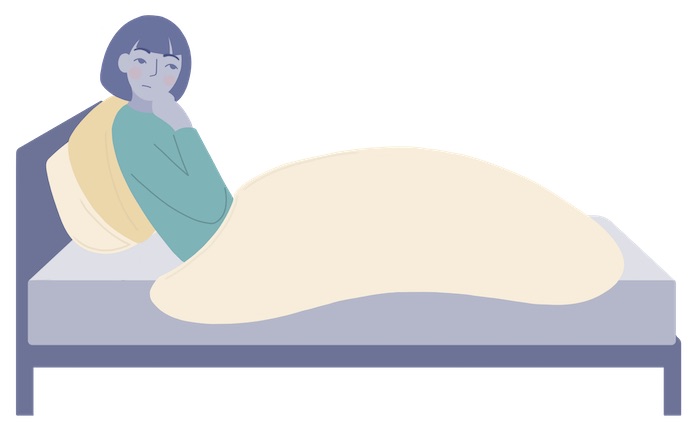
The correct treatment depends on what type of insomnia people have and what is causing it. For some people with acute insomnia, lifestyle changes — such as the ideas detailed above — may be enough to help them get back into a healthy sleep routine. However, some people with chronic insomnia may need different types of treatment. It can be hard to deal with insomnia on one’s own, so reach out to a doctor to figure out a treatment plan together.
That treatment plan may include behavioral therapy, medication, a combination thereof, or something else. Here’s a closer look at behavioral therapy and medication options.
Behavioral therapy
“Cognitive behavioral therapy for insomnia is a structured program that helps people identify and replace thoughts and behaviors that cause or worsen sleep problems with habits that promote sound sleep,” the Mayo Clinic explains. There are different types of behavioral therapy; a doctor can advise people on what might work best for their particular situation. Generally speaking, behavioral therapy is a non-invasive way to tackle insomnia.
Medication
In some cases, your doctor may decide that medication is the best way to treat your insomnia. According to WebMD, there are a number of different medicines that can be used to treat insomnia, but some of them can be addictive or cause unpleasant side effects. If medication is the right treatment for you, you and your doctor can work together to find something that doesn’t cause unpleasant side effects or interfere with any other medications you are taking.
What Should I Do If I Wake Up At Night?
So despite your best efforts, you woke up in the middle of the night. What should you do to help yourself get back to sleep — and what should you avoid because it could make your restlessness even worse?
Don’t stare at the clock.
Yes, it’s tempting to keep looking at the clock to see what time it is and calculate how long you have been awake and how soon you have to get up in the morning. But according to the Cleveland Clinic, you should try your absolute hardest not to watch the clock. “Marking off the minutes only heightens your distress about being awake,” their website explains. This stress can make it all the harder to fall back asleep.
If you have been lying awake for a while, get out of bed and do something else.
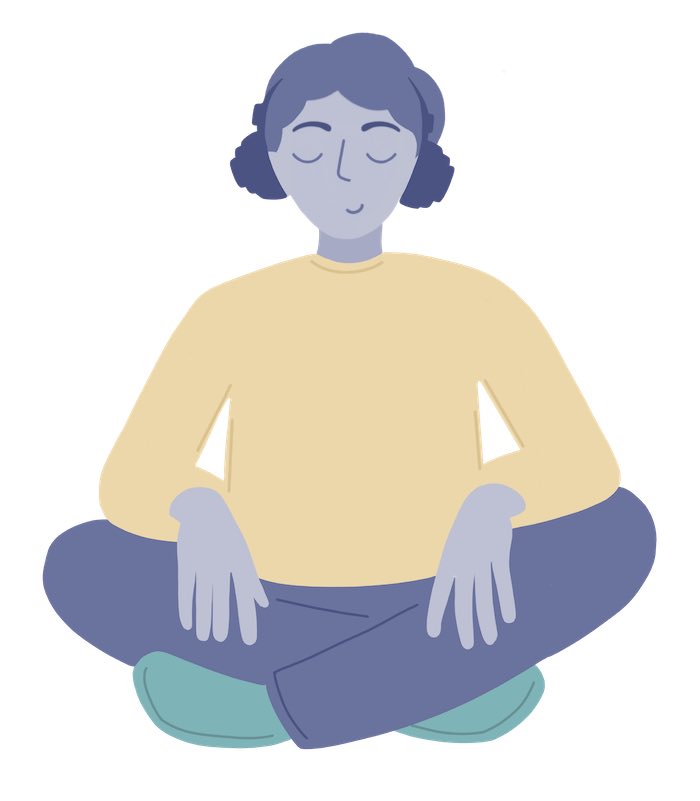 If you estimate that you’ve been lying in the dark for 20 minutes or more without falling back asleep, try getting up to do something relaxing instead.
If you estimate that you’ve been lying in the dark for 20 minutes or more without falling back asleep, try getting up to do something relaxing instead.
Listen to music, meditate, read, do the crossword — find something soothing that does not involve looking at a screen. Wait until you naturally feel sleepy again, then head back to bed. This will help you avoid developing a negative or stressful association with your bed.
Try progressive muscle relaxation.
Sleep.org recommends progressive muscle relaxation to help you fall asleep again. The website says: “To try it, start by tensing your toes for five seconds, then relaxing them. Repeat the pattern of tensing and relaxing your muscles, working gradually from your feet up your body to your neck.” Apparently, this can help you focus on your body to ground you in the face of stress and dispel any physical or mental tension that is keeping you awake.
The Bottom Line On Falling And Staying Asleep
Struggling to fall asleep at night can be a frustrating, lonely experience, particularly if everyone else in your household is sleeping soundly while your mind is still racing. The first piece of good news is that this is very common, and it doesn’t necessarily mean there is something wrong. The second piece of good news is there are a bunch of different things you can try to help improve your sleep.
The easiest thing to do is to take a look at your habits and environment to see if there is anything you can adjust. For instance, if you drink coffee after dinner or nap after coming home from work, this could be affecting your nighttime sleep. Meanwhile, small steps such as making sure your bed is comfortable, practicing a calming nighttime routine, and/or making sure to log some exercise every day can go a long way toward promoting better Zzzs.

If you do wake up in the middle of the night, don’t panic. Try not to look at the clock, and if you’ve been lying awake for what feels like forever, get up and do something else for a while (a relaxing activity, of course).
The occasional restless night is totally normal and nothing much to worry about. But if you feel like you are regularly struggling to fall asleep or notice that your lack of sleep is affecting you during the daytime, it’s definitely worth chatting with your doctor about what could be going on so you can identify some possible ways to address it. If you do have chronic insomnia, treatment options include behavioral therapy and medication to help you get the sleep you need.
[Editor’s Note: The content provided on this site is for general informational purposes only. Any information provided is not a substitute for professional medical advice. We encourage you to consult with the appropriate health expert if you have concerns.]
Featured image: wavebreakmedia/Shutterstock
References
- Ebrahim, IO. “Alcohol and sleep I: effects on normal sleep.” Alcoholism, Clinical and Experimental Research. 2013 Apr;37(4):539-49.
- Zumrutbas, A.E. “The Prevalence of Nocturia and Nocturnal Polyuria: Can New Cutoff Values Be Suggested According to Age and Sex?” International Neurourology Journal. 2016 Dec; 20(4): 304-310.
- Glazer Baron, K. et al. “Exercise to Improve Sleep in Insomnia: Exploration of the Bidirectional Effects.” Journal of Clinical Sleep Medicine. 2013; 9(8): 819-824.
- Stutz, J. et al. “Effects of Evening Exercise on Sleep in Healthy Participants: A Systematic Review and Meta-Analysis.” Sports Medicine. 2019 49: 269.
